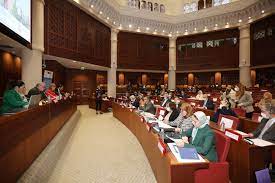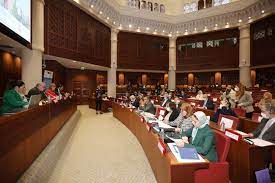HISTORY
The traditional representative system in Morocco was organized through traditional structures such as the ulema assembly by cities and regions, or the Jemaa assembly within the tribes. These structures were not elected, but nominated through a cooptation system. From 1880, Morocco began a range of reforms to adapt its institutions to modern standards. Among these reforms the creation of the position of grand vizier, having a structured and durable cabinet, with six ministries, including foreign affairs, finance, defense etc. In the process, the Sultan Abdelaziz decided to create a consultative assembly in 1904, which he named Majlis el Aayane. It is this assembly that summoned the international conference of Algeciras, and that drafted the constitution of 1908, which never entered into force because of the political unrests.
Read: HISTORY OF HOUSE OF SENATE IN MOROCCO
The National Assembly of Québec and the House of Representatives of the Kingdom of Morocco signed an agreement in 2012 which created the Morocco-Québec interparliamentary standing committee. The committee, which meets once a year, provides a framework of co-operation for the two assemblies. Subjects of discussion include the role of parliamentarians and ways to foster socio-economic and cultural ties between the two peoples.
On 24 January 2023, the House of Representatives approved a bill that would set a level of “adequate knowledge” of Tamazight as a condition for obtaining Moroccan citizenship
Interparliamentary co-operation also takes the form of seminars for the administrative staff of Morocco’s House of Representatives, during which the conduct of parliamentary proceedings and the particulars of parliamentary administration are discussed.

HOUSE OF REPRESENTATIVES
The House of Representatives is the lower house of the Parliament of Morocco. The House is one of the two chambers of the Moroccan Parliament. The House of Representatives has 395 members elected for five-year terms, 305 of whom are elected in multi-seat constituencies, and 90 of whom are elected in two national lists dedicated to promote gender equality and national youth.


